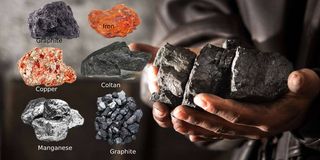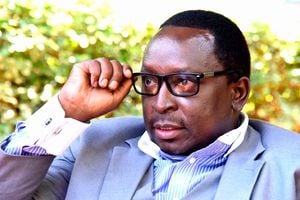
The Ministry of Mining, Blue Economy and Marine Affairs has published a preliminary mineral assessment report on 15 counties that shows Kenya has 970 minerals with the potential for further prospecting for exploration.
Earlier this year, United Nations Secretary-General, Antonio Guterres set up a Panel on Critical Energy Transition Minerals. If the panel is to heed his instructions, it will use this opportunity to insist that the burgeoning demand for Africa’s “green” minerals be used to right historical wrongs and avoid future mistakes.
Calls to triple investments in renewable energy have led to concerns about social and environmental impacts, as well as questions regarding the fair sharing of benefits linked to scaled-up investment in the production of batteries for electric cars, wind turbines and solar panels. African and other developing countries will provide a significant portion of the metals and minerals that will make possible the global pivot from fossil fuels.
This means African governments can make demands that put the well-being of their citizens and their economic and environmental health first. But first, the new panel must deliver an outcome document—expected to be released by the Secretary General in September—that serves as a blueprint for solving some of Africa’s biggest challenges, including energy poverty.
Green industrialisation on the continent must be implemented so that minerals such as copper, cobalt, lithium, bauxite, and manganese are extracted, processed, refined and developed into end-user products. And the processes for doing so must not do more harm than good, particularly to the indigenous peoples.
While communicating that speed is of the essence in implementing the energy transition, the panel must urge caution so that plans for sourcing “green” minerals in Africa and other resource-rich countries advance all our goals and not just those of the global economy. In African countries, the panel must advocate the transfer of technologies that support electrification, while encouraging the national production of renewable energy systems.
Globally, national laws need to align with the UN Declaration on the Rights of Indigenous Peoples, International Labour Organization Convention 169 (Indigenous and Tribal Peoples Convention) and others to address child labour, which is not unusual in mines serving the green transition. This must include formalising and supporting the role of artisanal miners. The panel’s third priority in Africa should be on improving mining corporate accountability.
Unless mining companies start paying their proper share of taxes, there is no hope for broad-based investments in healthcare and education to benefit the citizens of resource-rich countries. By focusing on these priorities, so desperately needed to ensure African countries benefit from this new market for critical minerals, the panel will provide a blueprint for a broader strategic initiative: transforming the voluntary principles and recommendations into binding global, continental and national commitments and laws.






